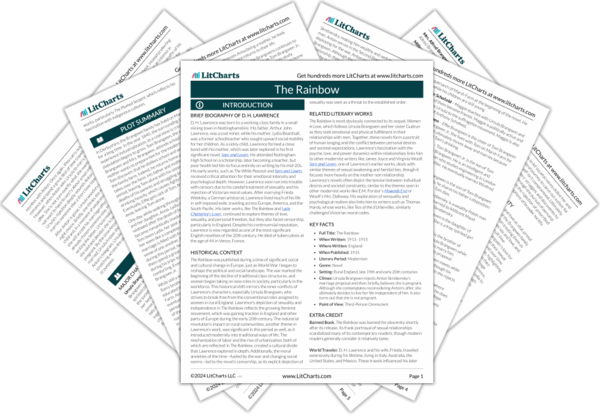Ursula’s contemplation of the world around her—particularly the coal miners working in the rain—reflects her growing awareness of the limitations of her environment and the modern world. Yet, as she observes the gray landscape, the appearance of a rainbow in the sky offers a moment of profound beauty and hope. The rainbow, vibrant and alive against the dreary backdrop, serves as a symbol of renewal and possibility. For Ursula, this moment is transformative, as she understands that despite the darkness surrounding her, there is still beauty to be found in the world. The rainbow represents a glimpse of a brighter future, causing Ursula to feel a new sense of purpose.
